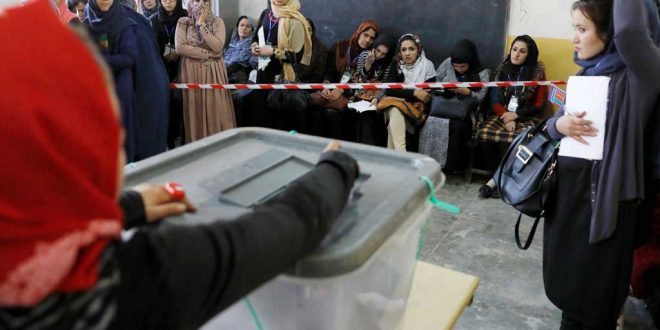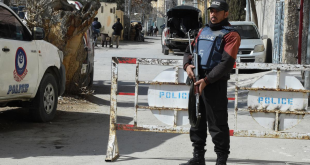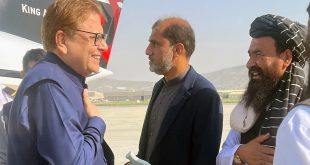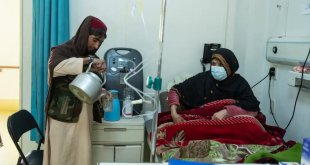With about a week remaining for the Independent Election Commission (IEC) to announce the preliminary results – scheduled for October 19 – of last month’s presidential election, the atmosphere of uncertainty is skyrocketing. There are constant claims of fraud since the day the vote was conducted as almost all of the presidential runners have claimed of ballot rigging and accused each other of vote manipulation, as well as IEC of favoring a certain candidate. Meanwhile, the most shocking blow of all came when reports of cyber-attacks and hacking of biometric servers emerged – which seemingly delayed the data transfer and tallying of the votes. All this casts a further dark shadow of doubt over the credibility of the election process. This is while the IEC maintains to have carried out a transparent presidential vote while at the same time acknowledging some technical problems. The IEC officials recently commented on delays in data transfer while blamed Dermalog – a Germany biometrics company responsible for the devices used in Afghan election – servers for the problem. Earlier, two experts of the firm had been called for to work on resolving the issue.
IEC personnel steer clear of criticism by throwing all the blame over Dermalog, saying protection of the servers against cyber-attacks lays with the company, which says efforts were made but no server was hacked. This situation isn’t unexpected because Afghanistan debuted the use of biometric devices for the first time in an election. With a week remaining for the results to roll in, some believe that given the ongoing sluggish process, the electoral body won’t be able to meet the deadline. On top of all these issues, there is deep disunity – mostly over biometric and non-biometric votes – among the election frontrunners and leaders of the country which is leading the country further down to the abyss of crisis, insecurity and divisions. They should let the IEC and foreign observers decide what votes to count as valid. National unity among the political elites is a critical factor to strengthen democracy in a country — something that Afghanistan is still struggling with. Political wisdom has it that as long as elites remain disunited, political regimes are unstable and thus it makes democratic transitions very difficult. This is true for Afghanistan because it’s not a full-blown democracy but a nascent one as of yet. The leaders should have a sense of patriotism to this country and must not deliberately undermine the current state, a move that would only benefit Afghanistan’s sworn enemies who want to see Afghanistan fail. Although, these claims of hacking and fraud might have some truth to it, they are much propagated by Afghanistan’s enemies to sabotage the process and nosedive Afghanistan as a state. These propagandized lies which reveal the election as a folly exercise would endanger Afghanistan as a state because it wasn’t folly but a prolongation of democracy. Therefore, the frontrunners should accept the results to be announced by IEC and don’t play with the fate of Afghans and the state.
 Afghanistan Times
Afghanistan Times




